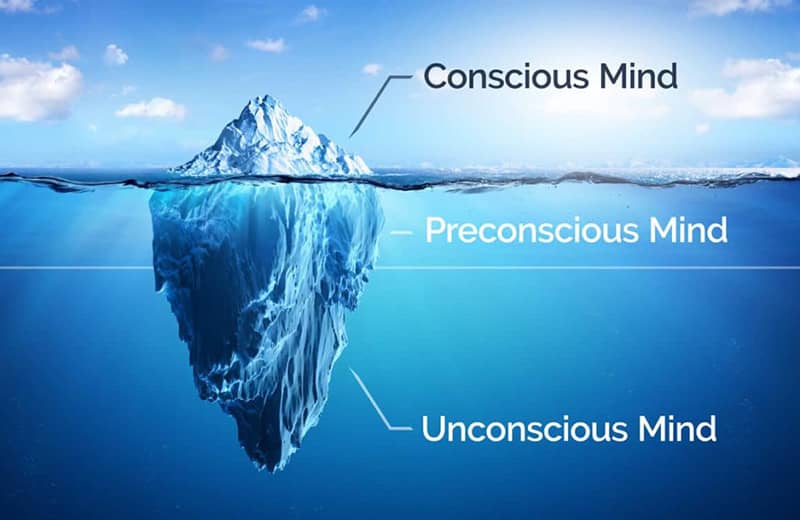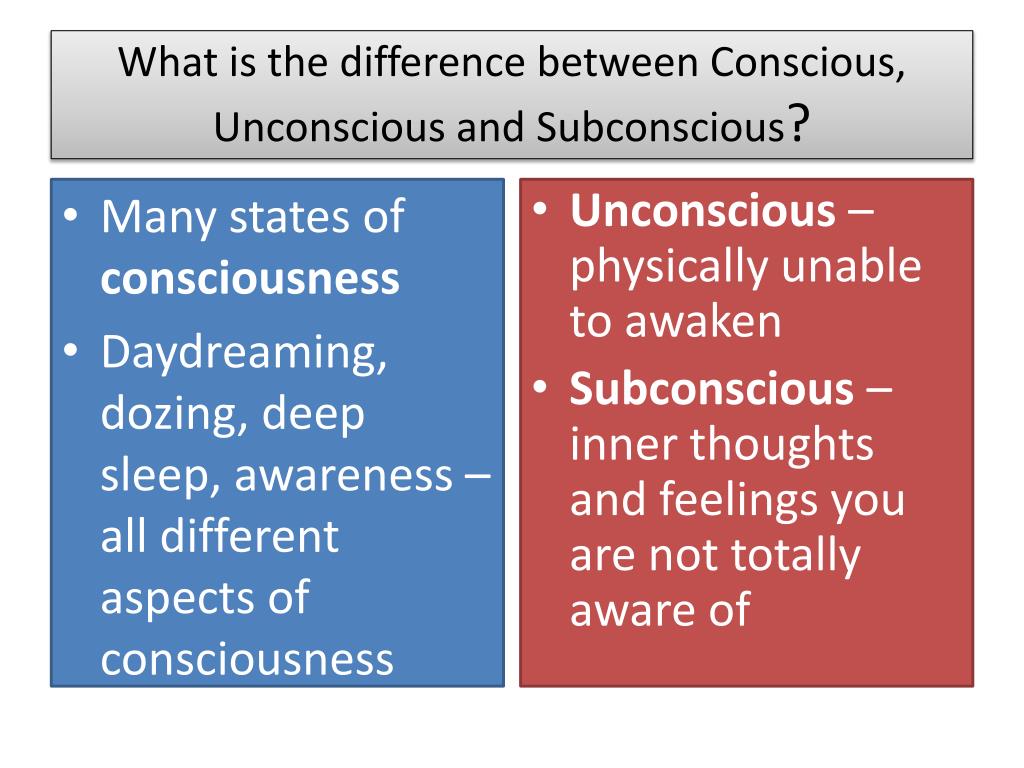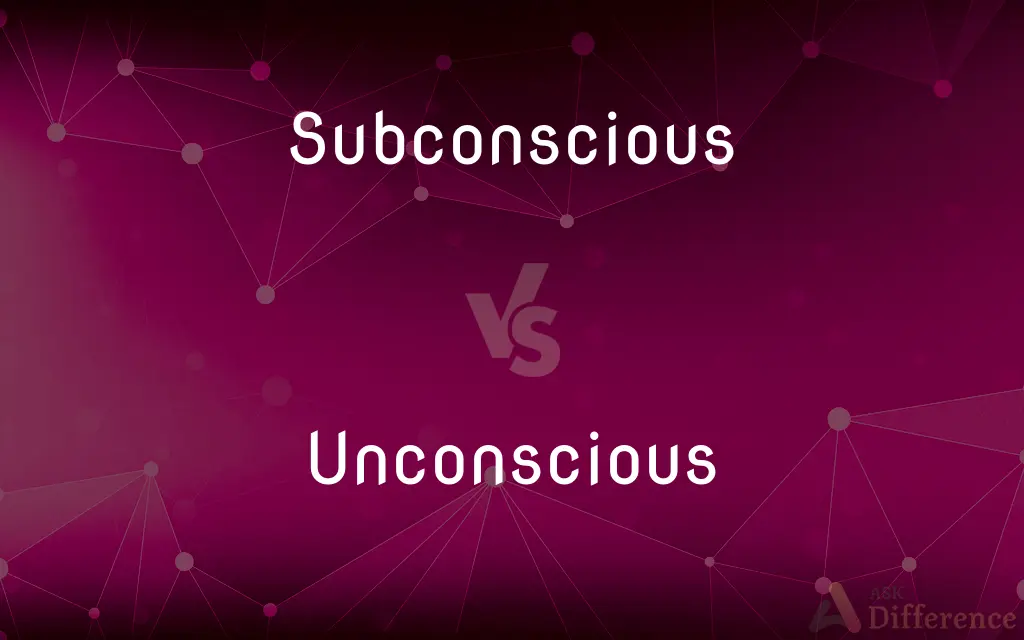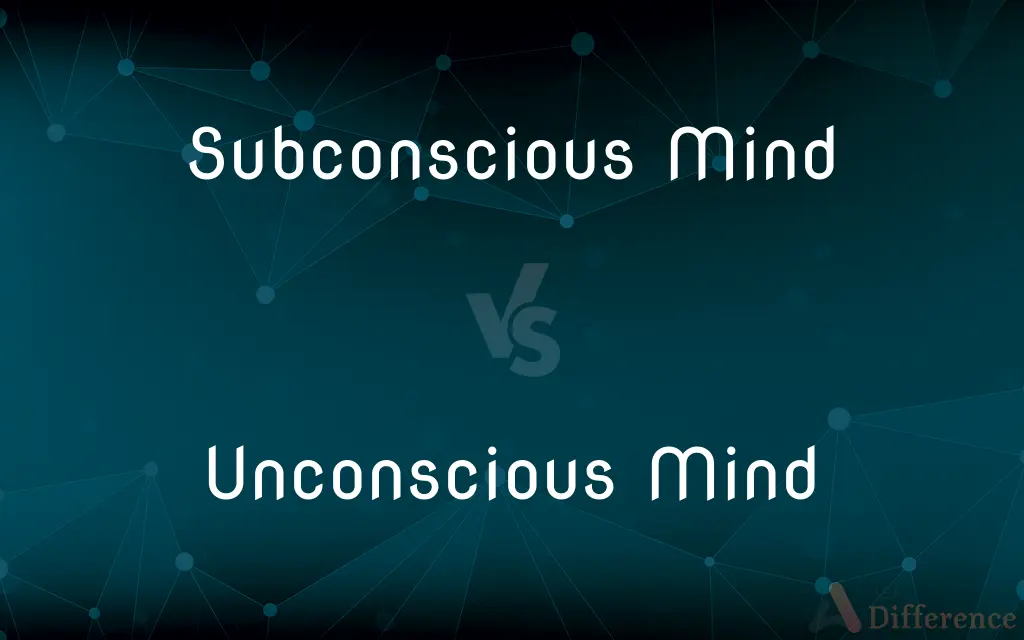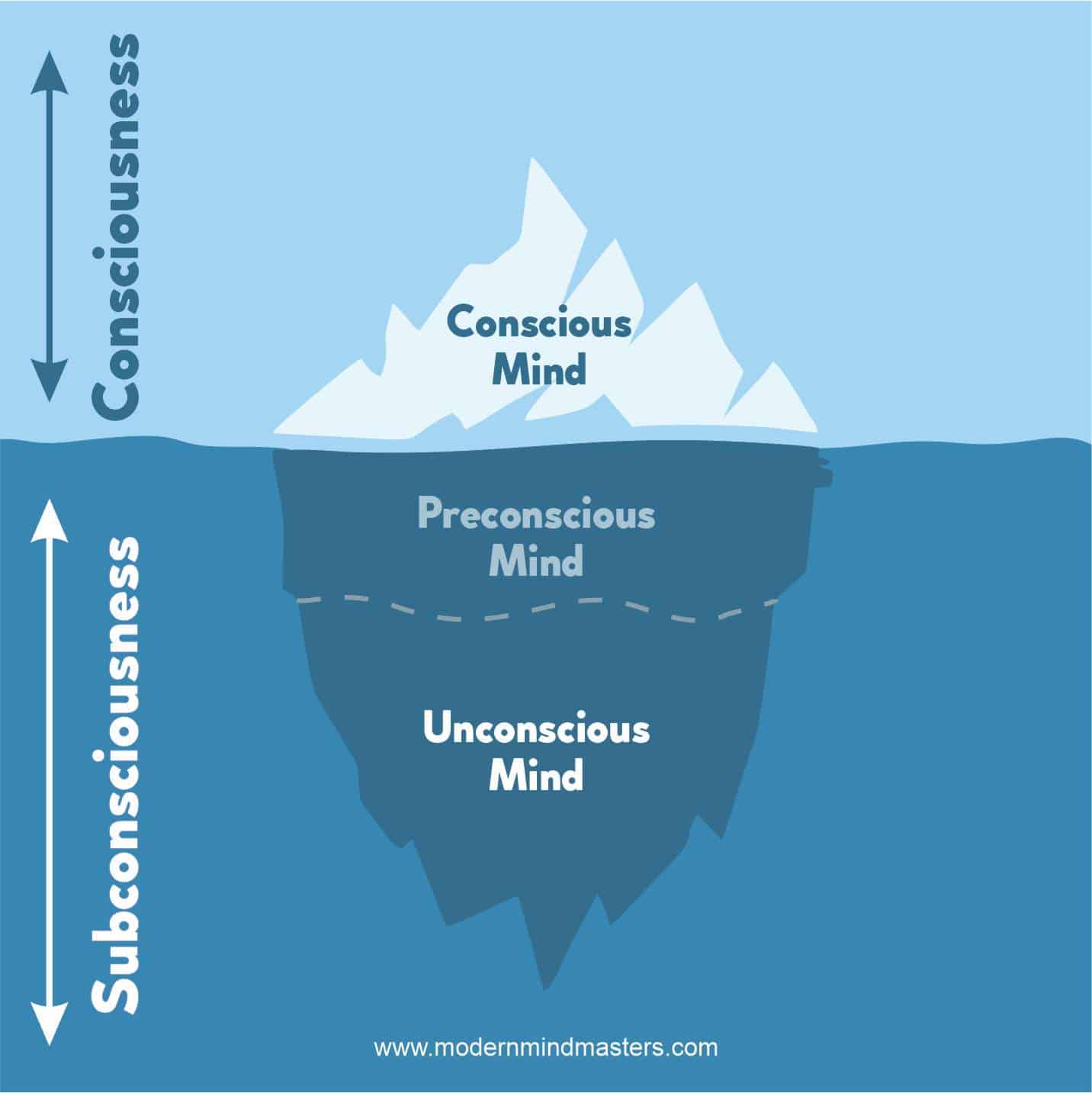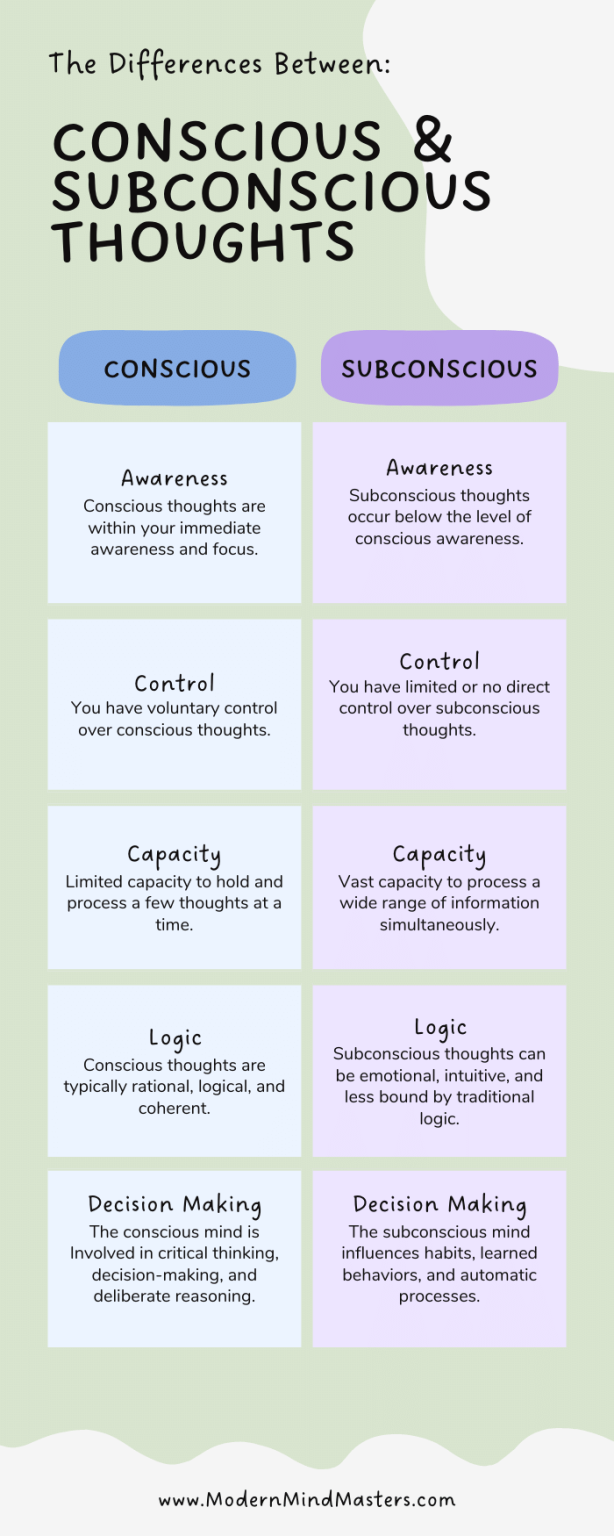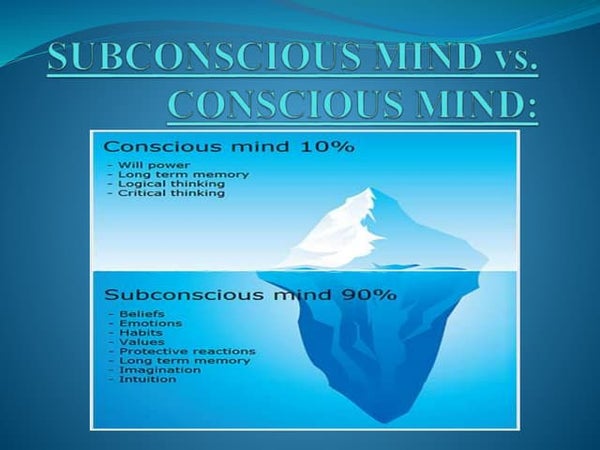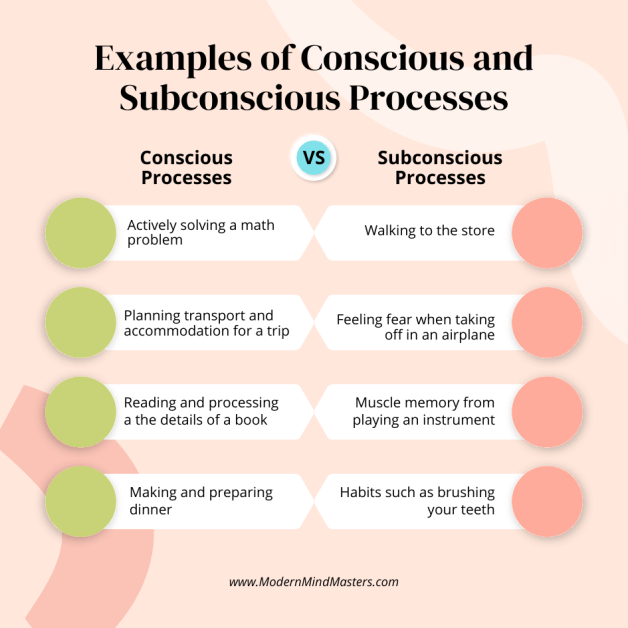What Is The Difference Between The Subconscious And The Unconscious
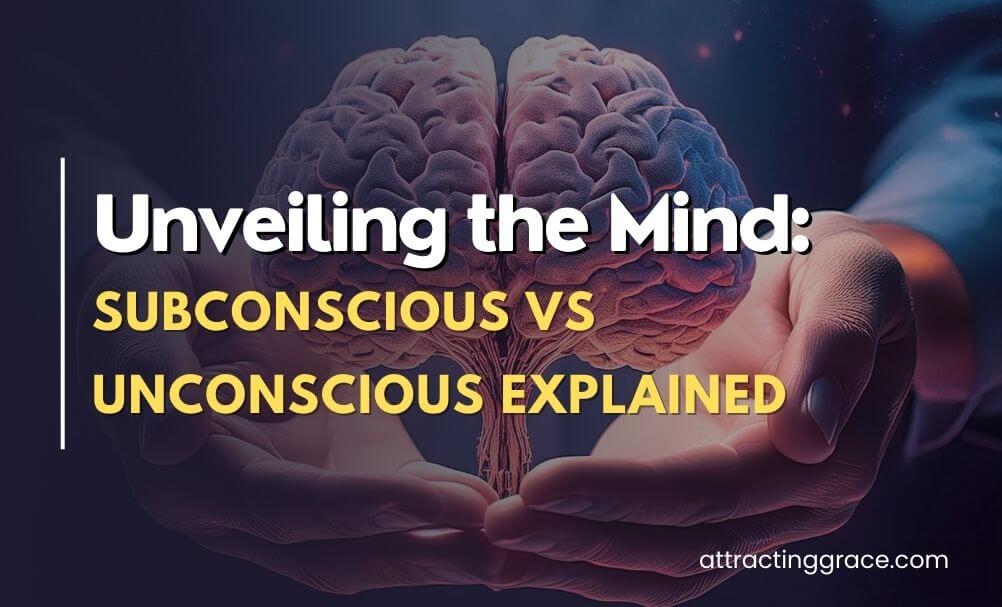
The terms subconscious and unconscious are often used interchangeably in everyday conversation, leading to a common misconception that they represent the same psychological state. However, within the fields of psychology and neuroscience, they denote distinct levels of mental processing, each playing a unique role in shaping our thoughts, feelings, and behaviors.
Understanding the nuances between these two concepts is crucial for anyone interested in gaining a deeper insight into the human mind. This article explores the key differences between the subconscious and the unconscious, drawing on insights from psychological theories and neurological research.
Defining the Subconscious
The subconscious, also sometimes referred to as the preconscious, is a mental realm containing thoughts, feelings, and memories that are not currently in conscious awareness but are readily accessible. Imagine it as a mental waiting room, holding information that can be brought into the forefront of your mind when needed.
This accessibility is a defining characteristic. For example, your phone number or the name of your childhood pet reside in your subconscious, easily recalled when prompted. It's like a file cabinet filled with information that you can quickly retrieve.
Key Features of the Subconscious
The subconscious operates largely on autopilot, managing routine tasks and learned skills without requiring conscious attention. Think of driving a car: after gaining experience, much of the process becomes automated, handled by the subconscious, freeing your conscious mind to focus on other aspects of the journey.
It also plays a crucial role in filtering sensory information. The subconscious acts as a gatekeeper, allowing relevant information to reach conscious awareness while filtering out irrelevant stimuli, preventing sensory overload.
The subconscious is also closely linked to habits and learned behaviors. Repeated actions become ingrained, and the subconscious takes over the execution, making them automatic and efficient.
Unraveling the Unconscious
The unconscious, in contrast, is a far deeper and more inaccessible level of mental processing. It contains thoughts, feelings, and memories that are repressed or forgotten, often due to their emotionally charged nature or traumatic origins.
These contents are largely unavailable to conscious awareness, and attempts to directly access them are usually unsuccessful. The unconscious exerts a powerful influence on our behavior, often without our conscious awareness of its effects.
The Unconscious According to Freud
The concept of the unconscious is most famously associated with Sigmund Freud, the founder of psychoanalysis. Freud viewed the unconscious as a reservoir of repressed desires, fears, and traumatic memories that shape our personality and drive our behavior.
He believed that these unconscious conflicts could manifest in various ways, including dreams, slips of the tongue (Freudian slips), and psychological symptoms. Psychoanalysis aims to bring these unconscious conflicts into conscious awareness, allowing for resolution and healing.
Modern Perspectives on the Unconscious
While Freud's theories have been influential, modern perspectives on the unconscious acknowledge its role in information processing, decision-making, and emotional regulation. Neuroscience research suggests that the unconscious mind plays a vital role in implicit learning and priming effects.
Studies have shown that unconscious processes can influence our preferences, attitudes, and even our behavior in social situations. These processes occur outside of our conscious awareness, highlighting the power of the unconscious mind.
Key Differences Summarized
The primary distinction lies in accessibility. The subconscious holds information that is readily available to conscious recall, while the unconscious contains content that is largely inaccessible.
Another key difference is the nature of the content. The subconscious primarily deals with automated processes, learned skills, and filtered sensory information, whereas the unconscious is believed to house repressed emotions, traumatic memories, and deep-seated desires.
Finally, the influence each exerts differs. The subconscious affects our automatic actions and perceptions, while the unconscious shapes our personality, motivations, and emotional responses at a deeper level.
The Significance of Understanding Both
Differentiating between the subconscious and the unconscious provides a more nuanced understanding of the human mind's complexities. Recognizing the distinct roles these levels of mental processing play can be beneficial in various fields, including psychology, therapy, and even marketing.
By understanding how information is processed at both conscious and unconscious levels, individuals can gain greater self-awareness and potentially address underlying emotional issues. It's a window into understanding our own motivations and behaviors.
Continued research in neuroscience and psychology promises to further illuminate the intricate workings of the subconscious and unconscious mind, potentially leading to new therapeutic approaches and a deeper understanding of the human experience.



